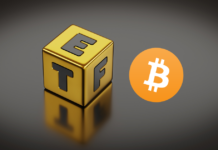Tamás Czeglédi, the organizer of the Blockchaineum 2.0 event, has emphasized that Europe is getting serious about blockchain. And it is high time Budapest embraced this trend, writes Budapest Business Journal.
During the conference, he noted that “many regulatory rules have been laid down recently on the European level, and it is in Hungary’s best interest to make use of them in order to become a regional center. It won’t happen, though, because of regulation but rather on purely market basis.”
Another speaker, Péter Benedek, the CEO of Blockchain Competence Center (BCC), a regional center which helps local companies adapt blockchain technology for their businesses, added that “whereas all the European Union had been focusing on until around one year ago was regulation, the past few months saw a shift towards a more practical approach.”
He also noted that the recently established Hungarian Ministry for Innovation and Technology in combination with “an enhanced national digital wellbeing strategy” might foster blockchain players’ innovation and fundraising potential.
The Blockchaineum event, first held in 2017, is the largest international blockchain summit in the CEE region powered by Bitcoinist, Exolite, and Shtrai.This year it has attracted numerous big shot speakers including Paxful CEO Ray Youssef, Ethereum developer Daniel Nagy, CEO of Cold Storage Coins Rob Grey, CEO of Inlock.io Csaba Csabai, and Vice President of Hungary’s National Council for Telecommunications and Information Technology, Zoltán Nándor Sik.
Bitcoinist CEO, Norbert Radoki, stated that “this year’s event will help achieve new levels of recognition, both nationally and within the central European zone.”
Hungary has been incrementally accepting both blockchain and cryptocurrency. Hence, in 2017 the BCC was established. Besides, in March 2018, the Korona Development Team launched the first Hungarian cryptocurrency, Korona. According to its developers, including Jean-Marc Stiegemeier, a former Wall Street financial adviser, it will not be a pseudo-currency unsuitable for actual transactions, writes Budapest Business Journal.
Korona’s ICO commenced on April 23rd and is expected to end in two months. At the same time, Korona has also announced that it intends to establish the Korona Cryptobank by the end of this year.



























